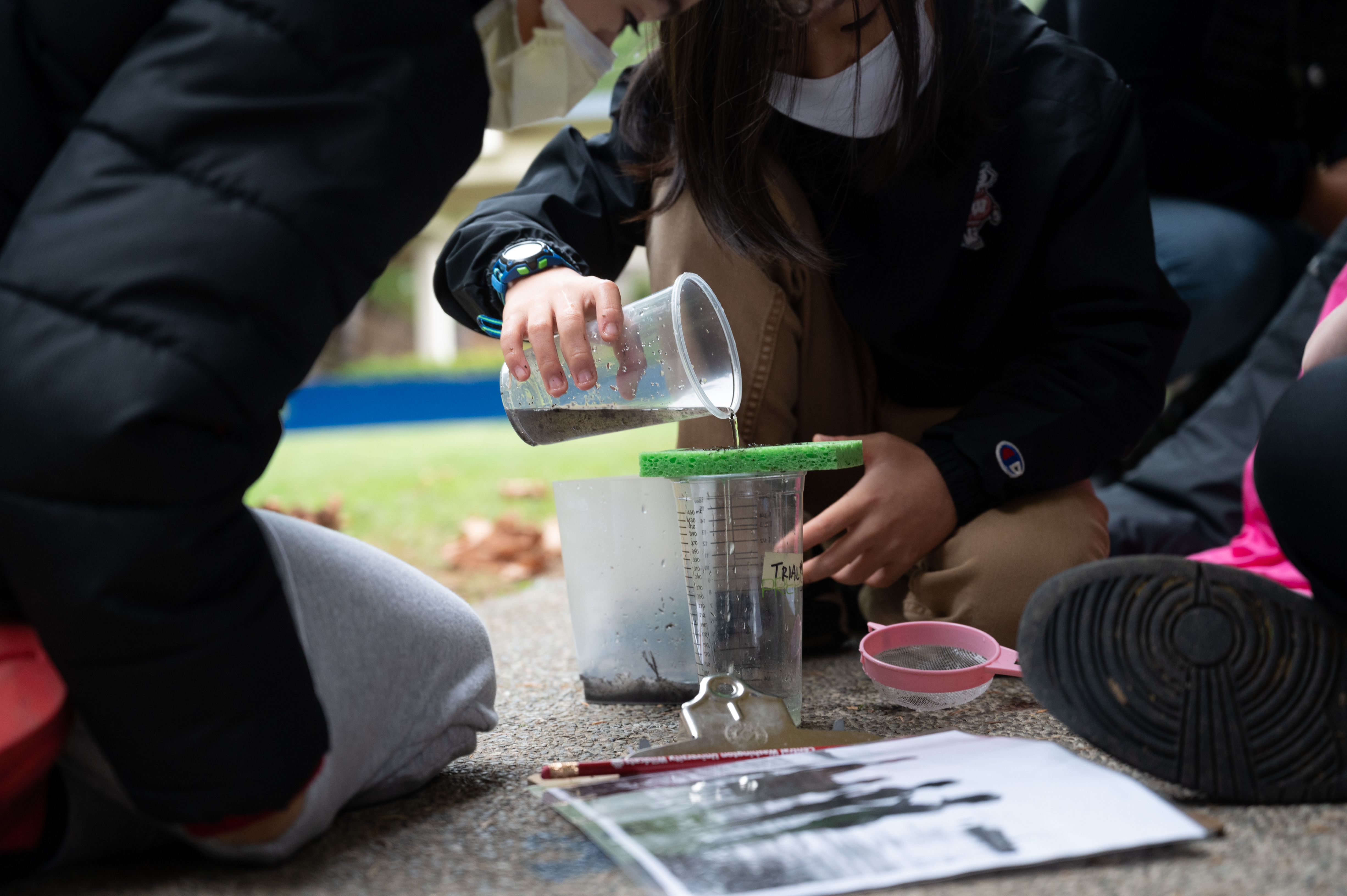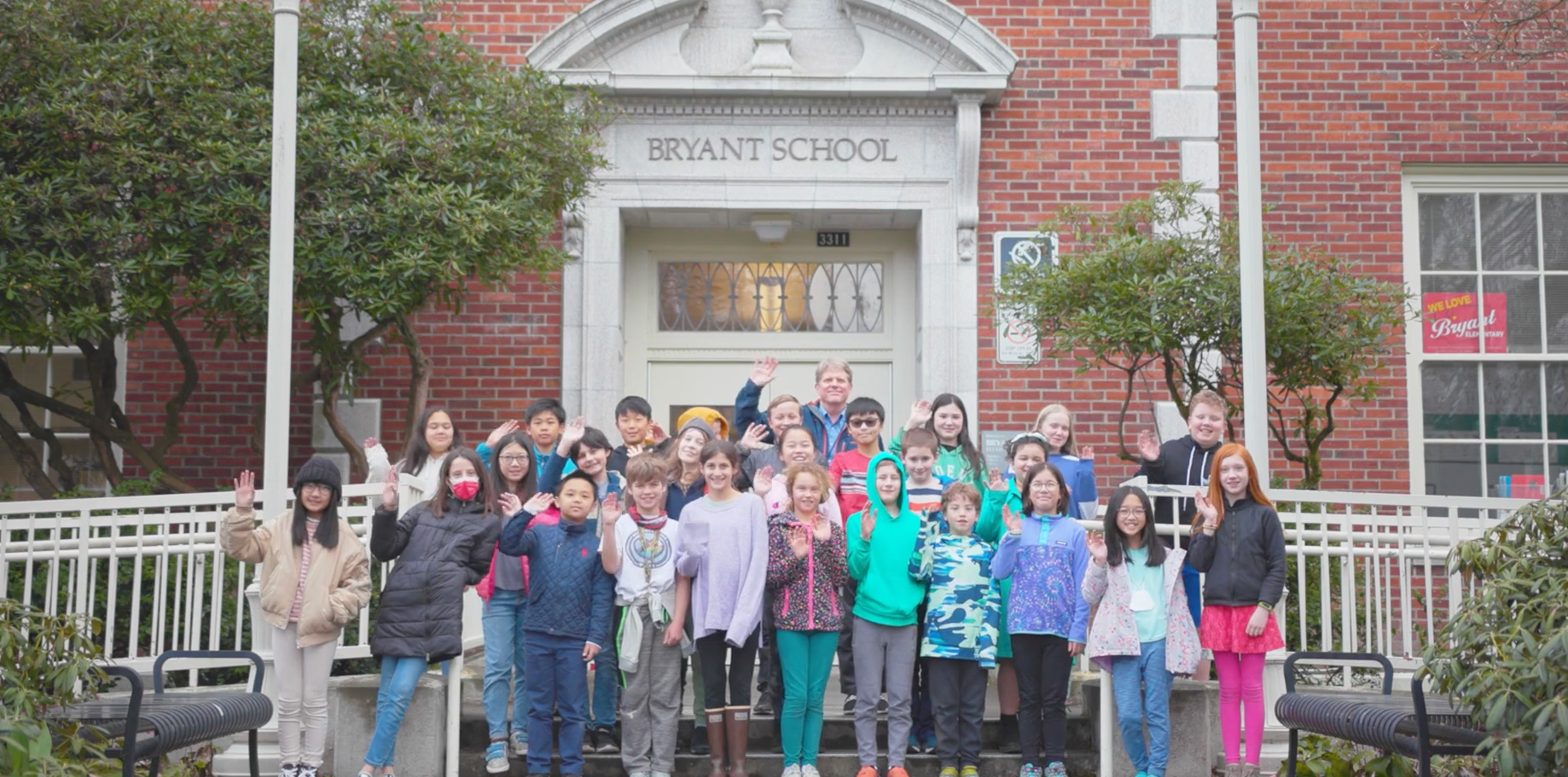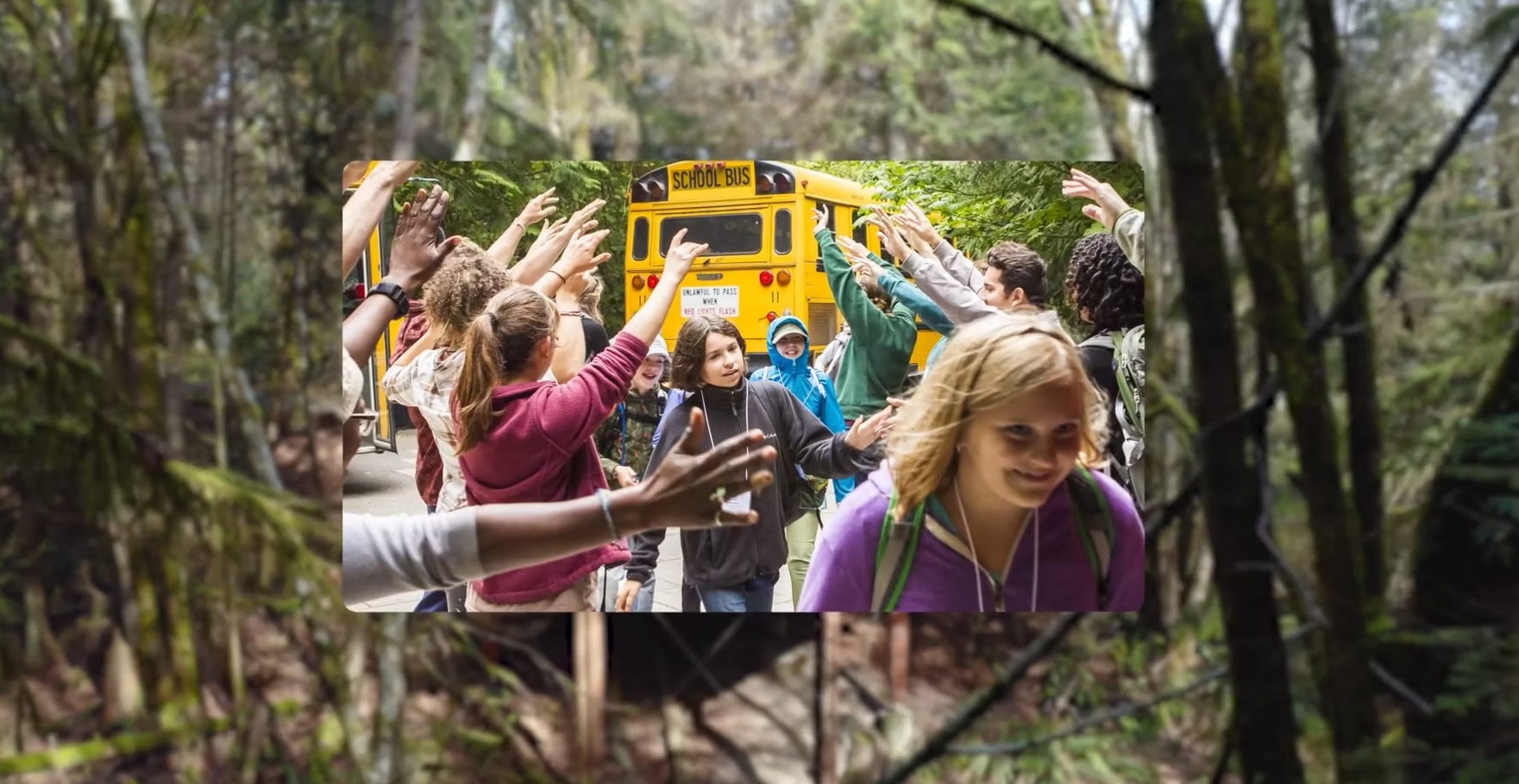Bryant Elementary was one of the schools included in our pilot program of the School…
IslandWood was honored to recently work on a project for the Northcoast Regional Land Trust (NRLT) to evaluate the curriculum of their environmental education programs in Humboldt County, California. Northcoast Regional Land Trust was seeking to serve more students and deepen students’ sense of environmental stewardship while using an equity lens – work that we are deeply passionate about.
“In 2021, Northcoast Regional Land Trust staff began the process of expanding our environmental education programs. From the start, we worked with IslandWood to not only conduct a review of our current curriculums, but also engage community members in dialogue to better understand the ways in which our programs could grow to better support Humboldt County youth. IslandWood provided realistic suggestions for program expansion and worked to ensure all voices were uplifted in the community input portion of the project,” said Karlee Jewell, Project Manager, Northcoast Regional Land Trust.
We examined the curriculum of two of their programs with input from the following people:
- Teachers who participated in NRLT programs in the past
- IslandWood staff with a variety of experiences including, delivering day programs, garden and farm education, managing volunteer and paid educators, registering programs and communicating with teachers.
- Staff from IslandWood partner, Oxbow Farm & Conservation Center about the farm education portions of NRLT programs.
- Humboldt County community members who participated in a focus group and/or interview, including an elementary school teacher, a high school teacher, a scientist, a representative of the Wiyot Tribe, and an Outings Leader with the Humboldt Chapter of Latino Outdoors.
- Staff responsible for NRLT program delivery, including Karlee Jewell, NRLTs education programs manager and Ivy North with North Coast Grower’s Association.
We approached the review with a variety of guiding principles, including:
- Equitably incorporating the contexts, concerns and communities of students who are historically underrepresented.
- Alignment with Next Generation Science Standards (NGSS) that connect with classroom learning to increase learning for students and the value of the program to teachers.
- That historical, current, and systemic injustices in education, land ownership and students’ lives impact our communities and the environment.
- Multiple experiences with the same students significantly deepen impact. Each additional experience is an opportunity to reinforce and build upon prior experiences.
- Connecting programs to lessons being learned in school is valuable. It makes classroom learning more meaningful and relevant to students.
Once we had the input and different perspectives of multiple reviewers, and identified where Next Generation Science Standards were present in NRLT’s programs, we offered recommendations including:
- To focus initially on redevelopment of one of the two programs, including greater incorporation of the site’s farm and farm lessee, a stronger central theme for the program and increased connections to traditional ecological knowledge and Next Generation Science Standards.
- Strategies and approaches that support expanding the number of students reached including, systems for registration, educator training and teacher communications.
- Building a deeper reciprocal relationship with the Wiyot Tribe both organizationally and in collaborating with them on the curriculum.
- Connecting the use of the land to Indigenous and Latinx populations, through such things as native food and culture and incorporating the voices and perspectives of those Latinx and Indigenous people who are working in gardens and farmland and carry generational knowledge of the land.
Brad Street, IslandWood Senior Manager of Professional Development, and lead manager of the project shared, “It provided an opportunity to bring in the breadth of experiences across our organization around approaches to collaboration, centering the perspectives of students furthest from collaboration, incorporating agriculture into environmental education, priorities in curriculum design and staff training and even the logistics of registering programs and communicating with teachers. In particular, doing community member focus groups, and then working with the Northcoast Regional Land Trust on ways they might incorporate perspectives from tribal and Latinx community members and build their own relationships felt very meaningful and inspiring. I’m excited to see where the NRLT goes with their programming in the future and honored that IslandWood was able to play a part in their efforts to increase equity in their programs!”
If you are interested in IslandWood consulting on your environmental education curriculum, please contact Brad Street.
If you haven’t already, subscribe to our newsletter to stay in the know about blog posts, news, and events!




![[Image description: three students stand in front of the house post in IslandWood's Great Hall.]](https://islandwood.org/wp-content/uploads/2020/03/Untitled-design-2020-03-04T160155.013.png)





